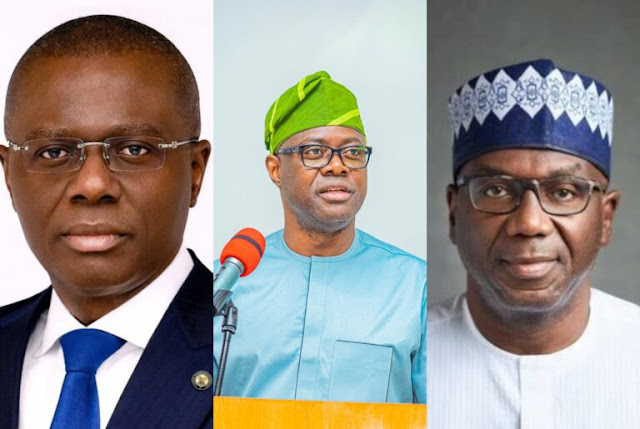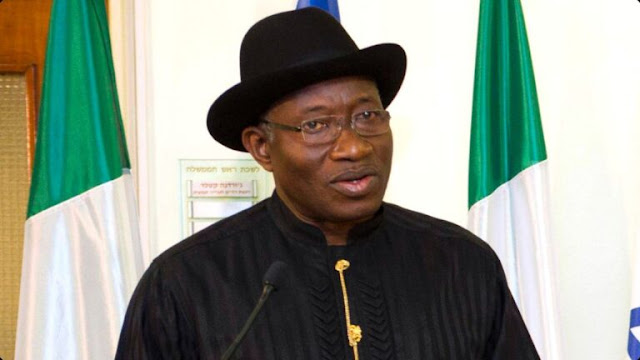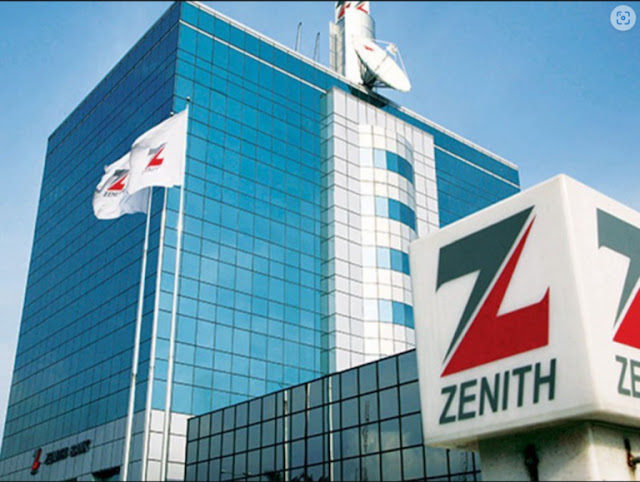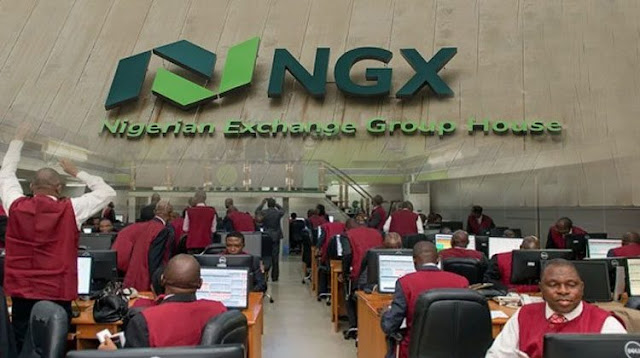ABUJA, Nigeria – August 25, 2025 – As Nigeria approaches the 2027 governorship elections, the refusal of several second-term governors to declare their preferred successors has plunged political parties into disarray, igniting intense jostling and factionalism across key states. This strategic silence has created a volatile climate of speculation, deepened intra-party rivalries, and set the stage for a high-stakes electoral battle that could reshape the political landscape of Nigeria’s 36 states. From Lagos to Benue, Ogun to Akwa Ibom, the uncertainty surrounding gubernatorial succession is fueling tensions within both ruling and opposition camps, with far-reaching implications for state and national politics. This report examines the unfolding drama, the key players, and the broader socio-political dynamics driving the race for 2027.
A Climate of Uncertainty: The Power of Silence
The deliberate silence of second-term governors on their preferred successors has emerged as a potent political strategy, creating a vacuum that has unleashed a wave of ambition and maneuvering within Nigeria’s major political parties—the All Progressives Congress (APC), the Peoples Democratic Party (PDP), and emerging players like the Labour Party and African Democratic Congress (ADC). With governors nearing the constitutional two-term limit, their endorsements are seen as critical in shaping party primaries and influencing voter sentiment. However, by withholding their choices, these governors are keeping party members in suspense, amplifying tensions and fostering a climate of uncertainty.
Political analyst Dr. Chinedu Okeke of Lagos Business School described the governors’ silence as a calculated move to maintain control over their parties’ internal dynamics. “By delaying their endorsements, governors are consolidating their influence, testing loyalties, and preventing premature factionalism,” Okeke said. “However, this strategy risks alienating party members and creating divisions that could weaken their parties’ chances in 2027.”
The uncertainty has also sparked public frustration, with party members and citizens alike calling for transparency. “We need clarity on who will carry the party’s flag,” said Tunde Adeyemi, an APC stalwart in Lagos. “This silence is causing confusion and allowing too many people to start their own campaigns.” The lack of direction has not only intensified intra-party rivalries but also created fertile ground for speculation, with media outlets and political pundits filling the void with predictions about potential candidates and alliances.
Lagos: The Battle for Nigeria’s Economic Powerhouse
In Lagos, Nigeria’s commercial capital and a political stronghold of the APC, the succession race is shaping up to be one of the most contentious. Governor Babajide Sanwo-Olu, who is in his second term, has yet to indicate a preferred successor, leaving the APC’s political machinery in a state of flux. For nearly two decades, Lagos has been dominated by the political structure led by President Bola Tinubu, whose influence has been decisive in selecting governors since 2007. Former governors Babatunde Fashola, Akinwunmi Ambode, and Sanwo-Olu himself were all handpicked by Tinubu’s camp, making the 2027 race a test of his continued grip on Lagos politics.
The APC in Lagos is crowded with aspirants vying for the governorship ticket. Deputy Governor Obafemi Hamzat, a loyal ally of Sanwo-Olu, is seen as a frontrunner due to his experience and proximity to the governor. Commissioner for Information Tokunbo Wahab has also emerged as a strong contender, leveraging his visibility and grassroots connections. House of Representatives Speaker-turned-Chief of Staff Femi Gbajabiamila, a close associate of Tinubu, is another heavyweight, with his national influence and political network giving him an edge. Lagos Speaker Mudashiru Obasa, known for his legislative prowess, is also in the race, as is former governor Akinwunmi Ambode, whose potential comeback has sparked speculation about reconciliation with Tinubu’s camp.
Younger technocrats, such as Hakeem Muri-Okunola, the Head of Service, and Senator Tokunbo Abiru, are also under consideration, reflecting a push for fresh faces in Lagos politics. “The competition in Lagos is fierce because it’s not just about governing a state—it’s about controlling Nigeria’s economic nerve center,” said political commentator Aisha Mohammed. “Tinubu’s endorsement will likely be the deciding factor, but his silence is keeping everyone on edge.”
The opposition in Lagos is equally fragmented. The PDP remains weakened by internal divisions, struggling to regain relevance after years of electoral losses. Gbadebo Rhodes-Vivour, the Labour Party’s 2023 governorship candidate who secured a strong showing, is reportedly being courted to return to the PDP, a move that could bolster the party’s chances but risks alienating his grassroots base. “Lagosians want a candidate who can challenge the APC’s dominance,” said PDP member Funmi Adebayo. “Rhodes-Vivour’s return could be a game-changer, but the PDP must first resolve its internal conflicts.”
Ogun: Regional Tensions and Ambitious Aspirants
In neighboring Ogun State, Governor Dapo Abiodun’s silence on his successor has failed to stem the tide of ambition. Ogun West, a senatorial district that has never produced a governor since the state’s creation in 1976, is mounting a vigorous campaign for the APC ticket, arguing that it is their turn to lead. Prominent aspirants include Senator Solomon Adeola, a powerful figure with strong ties to Tinubu, Deputy Governor Noimot Salako-Oyedele, who brings administrative experience, and former High Commissioner to the United Kingdom Sarafa Isola, whose diplomatic credentials add weight to his candidacy.
The succession race in Ogun is complicated by tensions between Abiodun and former governor Gbenga Daniel, now a senator. Daniel’s influence within the APC and his reported ambitions for his allies could challenge Abiodun’s control over the party’s primaries. “The Abiodun-Daniel rivalry is a ticking time bomb,” said political analyst Dr. Joseph Anzaku. “If not managed carefully, it could split the APC and give the opposition an opening.”
The PDP in Ogun is also grappling with its own challenges. Oladipupo Adebutu, the party’s 2023 governorship candidate, is working to revive his prospects despite lingering disputes within the PDP. Adebutu’s grassroots appeal and financial resources make him a formidable contender, but he must overcome internal factionalism to mount a strong challenge in 2027. “Ogun’s political landscape is fluid,” said PDP supporter Tunde Orshio. “Adebutu has a chance, but the PDP needs to unite and present a clear alternative to the APC.”
Kwara: Zoning and Political Revival
In Kwara State, Governor Abdulrahman AbdulRazaq’s commitment to zoning the 2027 governorship ticket to Kwara North has sparked intense political activity. Aspirants such as Senator Sodiq Umar and businessman Alhaji Tajudeen Audu have openly declared their interest, while party elders are reportedly working to build consensus around a single candidate. AbdulRazaq’s silence on his preferred successor has fueled speculation, with some suggesting he may favor a loyalist to maintain his influence post-tenure.
The revival of former Senate President Bukola Saraki’s political machine adds another layer of complexity. Saraki, a PDP stalwart, retains significant influence in Kwara despite losing ground to the APC in recent years. His ability to mobilize support could make the PDP a serious contender in 2027, particularly if the APC’s zoning strategy falters. “Saraki’s shadow looms large in Kwara,” said political observer Fatima Usman. “His influence could tip the scales if the APC fails to unite behind a strong candidate.”
Nasarawa: An Open Race
In Nasarawa State, Governor Abdullahi Sule’s tight-lipped approach has left the APC’s governorship race wide open. Senator Aliyu Wadada and former Inspector General of Police Mohammed Adamu are emerging as frontrunners, but the lack of a clear endorsement has created uncertainty. The PDP, buoyed by its performance in the 2023 elections, is also gearing up for a competitive race, with candidates like former minister Labaran Maku eyeing the ticket. “Nasarawa’s political future is unpredictable,” said APC member Musa Ibrahim. “Sule’s silence is giving everyone a chance to position themselves, but it’s also creating confusion.”
Bayelsa: Zoning and Regional Agitation
In Bayelsa, the issue of zoning is dominating the succession debate. Stakeholders from Bayelsa East argue that their district has never fully enjoyed a governorship term, fueling demands for the 2027 ticket. Contenders include NDDC Managing Director Samuel Ogbuku, former governor Timipre Sylva, and Senator Ben Murray-Bruce, each bringing significant political clout. Governor Douye Diri’s silence has intensified speculation, with some suggesting he may favor a loyalist to maintain his influence. “Bayelsa’s politics is all about fairness,” said community leader Ejiro Okonkwo. “Bayelsa East deserves a chance, but the governor’s decision will be critical.”
Akwa Ibom: Tensions Over Promises
In Akwa Ibom, Governor Umo Eno’s alleged promise of a second-term ticket, made when he defected from the PDP to the APC in June 2025, is causing friction within the party. The ambition of Ekperikpe Ekpo, Minister of Petroleum Resources (Gas), has raised fears of destabilization, as party members worry about a repeat of past internal conflicts. “Eno’s defection was supposed to unify the APC, but Ekpo’s moves are creating tension,” said APC stalwart Grace Ior. The PDP, meanwhile, is capitalizing on the APC’s divisions, with candidates like Senator Bassey Albert preparing for a comeback.
Adamawa: Atiku’s Waning Influence
In Adamawa, the shadow of former Vice President Atiku Abubakar looms large, but his influence is waning following the defection of key allies to the ADC. Senator Aishatu Ahmed (Binani), former governor Jibrilla Bindow, and Senator Abdulazeez Nyako are positioning themselves as ADC contenders for 2027. Within the PDP, Secretary to the State Government Auwal Tukur, Senator Aminu Iya Abbas, and Atiku’s son, Adamu Atiku Abubakar, are vying for the ticket. The APC is banking on National Security Adviser Nuhu Ribadu’s growing influence to secure the state. “Adamawa is a battleground,” said PDP member Idris Mohammed. “Atiku’s grip is slipping, but the competition is fierce.”
Oyo: Makinde’s Delayed Decision
In Oyo State, Governor Seyi Makinde’s promise to announce his successor by January 2026 has sparked intense speculation within the PDP. House Speaker Adebo Ogundoyin and policy expert Adebo Akande are leading contenders, while the APC is rallying behind Power Minister Bayo Adelabu and Federal Inland Revenue Service Chairman Zaccheus Adedeji. “Makinde’s delay is strategic, but it’s also creating anxiety,” said political analyst Dr. Mary Adikwu. “The PDP needs a strong candidate to counter the APC’s growing momentum.”
Benue: Early Turbulence
In Benue, Governor Hyacinth Alia’s administration is facing early resistance, with former Attorney General Michael Aondoakaa and former Chief of Staff Terwase Orbunde building support networks. The recent crisis in the Benue State House of Assembly, marked by the resignation of Speaker Aondona Dajoh and the election of Alfred Emberger, has added to the state’s political volatility. “Alia’s leadership is under scrutiny,” said Benue resident Tunde Orshio. “The 2027 race is already heating up, and it’s going to be a tough fight.”
Broader Implications: A Fierce Electoral Battle
The silence of second-term governors has set the stage for one of the fiercest electoral battles since Nigeria’s return to democracy in 1999. The uncertainty is not only reshaping state politics but also influencing the national balance of power, as governorship elections often serve as a precursor to presidential contests. The APC, PDP, Labour Party, and ADC are all positioning themselves to capitalize on the fluid dynamics, with alliances and defections likely to intensify in the coming months.
The governors’ silence reflects a broader trend of strategic maneuvering in Nigerian politics, where endorsements carry significant weight. However, this approach risks deepening factionalism and eroding party cohesion. “The longer governors delay, the more room there is for chaos,” said Dr. Joseph Anzaku. “Parties need to start building consensus now to avoid costly primaries.”
The socio-economic context adds urgency to the succession debate. Nigeria’s high inflation (21.88% in July 2025), rising fuel prices (diesel at ₦1,789.45 per litre), and widespread poverty (38.9% of the population) demand strong leadership. The next governors will inherit these challenges, making the 2027 elections a referendum on governance and economic management.
Stakeholder Reactions: Frustration and Hope
The uncertainty has sparked mixed reactions. APC members like Aminu Lawal in Lagos expressed frustration with the lack of clarity. “We need a clear direction to prepare for 2027,” he said. PDP supporters, such as Funmi Adebayo in Ogun, see an opportunity to exploit the ruling party’s divisions. “The APC’s confusion is our chance to regroup,” she said.
Civil society groups, like the Socio-Economic Rights and Accountability Project (SERAP), have called for transparent primaries to ensure credible candidates. “The succession process must prioritize competence and accountability,” said SERAP’s Kolawole Oluwadare. Residents like Grace Ior in Benue emphasized the need for leaders who address pressing issues like insecurity and poverty.
Policy Recommendations
To navigate the succession crisis and ensure a stable transition, the following recommendations are proposed:
Transparent Endorsements: Governors should announce their preferred successors early to reduce uncertainty and foster party unity.
Inclusive Primaries: Parties should conduct open and fair primaries to prevent factionalism and ensure credible candidates.
Address Economic Challenges: Aspirants should prioritize policies to tackle inflation, fuel prices, and poverty.
Engage Stakeholders: Parties should involve community leaders and civil society in the selection process to build trust.
Strengthen Party Structures: The APC, PDP, and others must resolve internal conflicts to present a united front in 2027.
Conclusion
The refusal of second-term governors to declare their successors has plunged Nigeria’s political landscape into a state of flux, setting the stage for a fiercely contested 2027 governorship election. From Lagos to Benue, the silence has fueled ambition, factionalism, and speculation, reshaping the dynamics of state politics. As aspirants position themselves and parties scramble to adapt, the outcome of these races will have profound implications for Nigeria’s governance and national balance of power. With economic challenges looming large, the next governors must be prepared to deliver stability and progress in a nation hungry for change.






